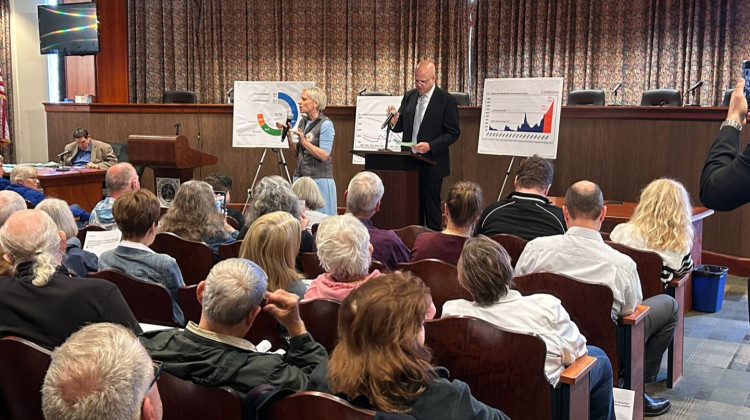
Indiana Department of Agriculture director Ted McKinney (left, seated) signs a friendship agreement with China's Hebei Provincial Department of Agriculture during a trade mission in 2015.
Courtesy office of the Lieutenant GovernorIndiana’s top agriculture official has been tapped to oversee global farm trade for the Trump administration.
Indiana Department of Agriculture director Ted McKinney now faces a Senate confirmation to become the USDA’s first-ever trade undersecretary.
He says he’s grateful for the support he’s received since getting the news.
“I am so honored to be nominated by the president, and I look forward to serving if confirmed,” McKinney says.
McKinney has been Indiana’s agriculture chief since 2014. He created the Indiana Grown program and was part of a state agricultural trade mission to China in 2015.
Before that, McKinney worked at two big Hoosier agribusinesses: Dow AgroSciences and Eli Lilly subsidiary Elanco, where he was director of global corporate affairs.
If confirmed to the USDA’s newly created trade post, McKinney will be tasked with cultivating new markets for American farm commodities and brands.
Indiana Farm Bureau president Randy Kron says it’s an important job, and McKinney can handle it.
“It’s reaching out, finding new partners,” Kron says. “Where can we open up a door for trade with some other countries, or maybe expand the trade that we have?”
He says the creation of the undersecretary post “elevates” those priorities.
“It tells me that [USDA] Secretary [Sonny] Perdue gets it, how important trade is to agriculture,” Kron says.
Indiana is seventh in the nation for exports of agricultural commodities, particularly corn and soybeans. Advocates often say Hoosier farmers send every fourth or fifth row of those crops overseas, plus much more in exports of food animals that eat that grain.
Hoosier brands like Red Gold tomatoes are also sold around the world.
McKinney is just one of a spate of long-awaited USDA nominations Trump has made in recent days. American Soybean Association CEO Steve Censky is up for the job of deputy secretary, and former Trump campaign policy advisor Sam Clovis was tapped to be undersecretary for research and economics.
All three nominations will require approval from the U.S. Senate Agriculture Committee and then the full Senate.
 DONATE
DONATE







 Support WFYI. We can't do it without you.
Support WFYI. We can't do it without you.